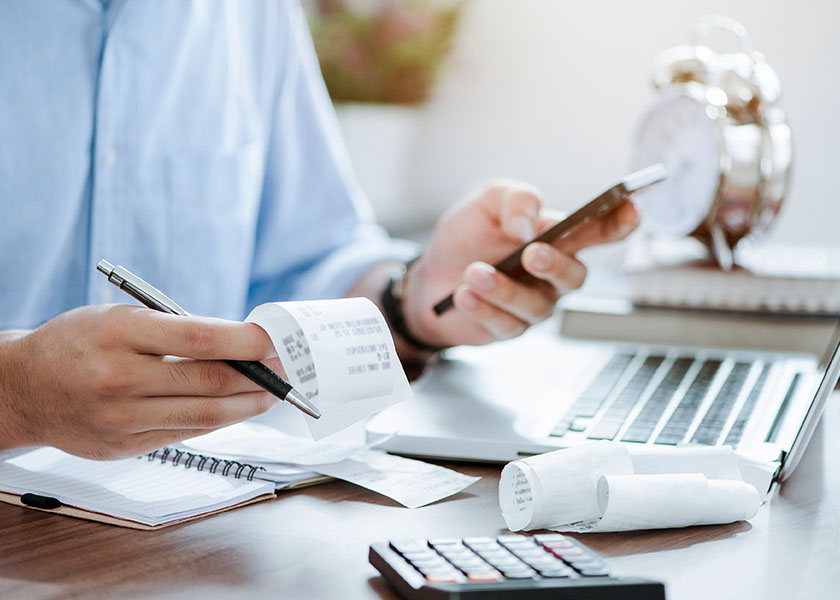Does the word “sale” send you running to your wallet? How many half-priced clothes hang in your closet with the tag still on? How many uncomfortable shoes did you buy solely because they were on sale? When thinking about money, do you feel stressed? Tense? Controlling? Confused? Like you have an abundance or a severe lack of it?
If you relate to any of these questions, you may have an unhealthy relationship with your money. This might be because you were raised to think of money negatively. Or maybe you’ve had a hard time financially and still carry around that stress and pain.
Regardless of the root of these unhealthy tendencies, you’re not fated to live that way forever. Now is the perfect time for you to take control of your relationship with money. If you’re waiting for your sign, this is it.
This doesn’t mean you have to only save your money – you can indulge every now and then. Just be more conscious of it.
If you’re overwhelmed, think of building this relationship like cleaning your house. The idea of cleaning the whole house at one time can feel too stressful. Sometimes so stressful that you decide to push it off, and the mess gets worse. Instead of quitting or stressing yourself out, start by cleaning one room at a time.
Apply this to your relationship with money. Just adopt one of the healthy habits below at a time, and soon you’ll be on your way to creating a healthy relationship with money.
-
Expect the Best, Prepare for the Worst
We go through many tough experiences in life, most of which are out of our control and not our fault: job loss, illnesses, accidents, etc. Unfortunately, our financial responsibilities don’t get a break during these times. Be prepared for them by having an emergency fund ready. Your emergency fund should be equal to 3-6 months of your living expenses, preferably in an account you can quickly pull the funds from, if needed. The size of your emergency fund will depend on your unique situation. Talk with your financial advisor to make sure you’re properly funded.
-
Reexamine Your Beliefs About Money
Be real with yourself: What kinds of limiting behaviors have you developed with your money? Recognize and evaluate any unhealthy patterns you might have with your money – then work on healing them so you can create beliefs about your money that will support your budget, lifestyle, and goals.
An example of an unhealthy spending pattern that many of us can relate to is getting Starbucks every day. It’s nice to have that little treat to start off each day and $5 may not seem like a lot of money. But multiply that by five: That’s $25 per week and $1,300 per year for your favorite morning beverage. A great way to break this habit is to save it for Fridays. By only buying it one day per week, the annual total would be $250. Sounds like an easy way to save $1,000.
-
Don’t Spend More Money Than You Make
Limit debt by viewing credit cards as something only to be used when needed and pay it back immediately. Buy only what you can afford.
What about that one thing that you really want but simply can’t afford it right now? Start saving. It’ll feel incredible knowing you purchased it responsibly.
-
Pay Yourself First
Look at saving money as an item in your monthly budget. Don’t wait until the end of the month to save what’s left – treat your savings like you would your light bill, your future self will thank you. A good place to start is allocating at least 10% of your earnings to savings. However, if you can’t afford 10% right now, start lower and increase as you go. The important part is building the habit of paying yourself first.
-
Know Where Your Money Goes
Don’t ignore your financial statements. Build a monthly budget (or use one of the many online options) to track your inflows and outflows. This habit alone can build your confidence with your money – as well as support that goal of building a steady, strong, and healthy relationship with it in your life. Having a budget can help reduce anxiety around spending. Knowing you have planned ahead for a purchase makes it that much more enjoyable.
Track your progress! How does your income, savings rate, and net worth compare to last year? Reviewing the key components of your financial life on an annual basis helps ensure that you’re moving in the right direction, and if you’re not, gives you time to make changes.
-
Last, but Not Least – Give
Allow giving to be a healthy way of living. Choosing to be generous can help break your desire for more material possessions.
Money is not your only source of happiness. However, if you are not at a point where giving financially is an option, be generous with your time. Random acts of kindness, volunteering or simply listening to somebody can go a long way.
Be open to having a life of abundance. Be aware of your feelings about money, and if they are negative – patiently and actively change that. Creating a healthy relationship with your money can help build a financial cushion to fall on if the unexpected occurs.
Talk to a Financial Advisor Today
My career allows me to help people form a healthy relationship with their money. Please feel free to reach out to a financial advisor to sit down and have a conversation about where you are with your financial goals, and where you want to be.


